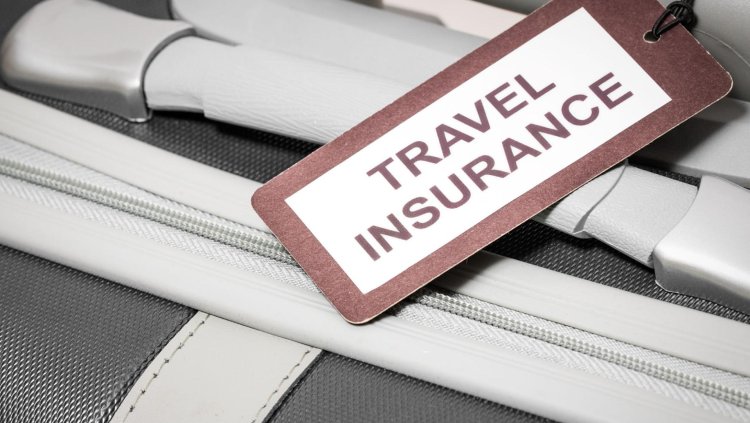Travel insurance is a vital component of any trip, offering protection and peace of mind against unexpected events. One common concern for travelers is flight disruptions—delays, cancellations, or missed connections. Understanding how travel insurance covers these issues can help you make informed decisions and avoid unnecessary stress during your journey.
In this blog post, we'll explore how travel insurance addresses flight disruptions, what coverage options are available, and how to ensure you have the right protection for your trip.
Understanding Flight Disruptions
Flight disruptions can occur due to a variety of reasons, including:
- Weather Conditions: Severe weather can delay or cancel flights.
- Technical Issues: Mechanical problems or other technical issues can lead to delays.
- Airline Strikes: Labor disputes or strikes by airline staff can cause disruptions.
- Political Instability: Political unrest or security concerns can affect flight schedules.
- Personal Reasons: Unexpected personal issues, such as illness or family emergencies, can also impact travel plans.
Given these potential disruptions, having travel insurance can provide financial protection and support when things don't go as planned.
Types of Coverage for Flight Disruptions
Travel insurance policies vary in terms of coverage, but most include several key features related to flight disruptions:
1. Trip Cancellation Insurance
Trip cancellation insurance is designed to reimburse you for non-refundable expenses if you need to cancel your trip before departure due to covered reasons. Flight disruptions may not always be covered under this policy, but if your flight is canceled due to a covered reason (like severe weather or a natural disaster), you might be eligible for reimbursement.
2. Trip Interruption Insurance
Trip interruption insurance covers costs if your trip is cut short due to a covered reason. If your flight is disrupted while you're already traveling, this insurance can help cover additional expenses such as rebooking flights, accommodation, and meals.
3. Flight Delay Insurance
Flight delay insurance specifically covers additional expenses incurred due to flight delays. This may include costs for meals, accommodation, and transportation if your flight is delayed for an extended period. Some policies also provide compensation for delays of a certain duration, such as 6 or 12 hours.
4. Missed Connection Insurance
Missed connection insurance covers the cost of catching up with your travel plans if you miss a connecting flight due to a delay or other covered reasons. This can help cover the cost of rebooking flights and other related expenses.
5. Baggage Delay Insurance
While not directly related to flight disruptions, baggage delay insurance is often included in travel insurance policies. It provides coverage for essential items you need to purchase if your luggage is delayed, which can be especially useful if a flight disruption causes your baggage to be delayed.
What Does Travel Insurance Typically Not Cover?
While travel insurance offers valuable protection, there are some common exclusions and limitations:
1. Airline-Specific Issues
Travel insurance usually doesn’t cover issues that are the sole responsibility of the airline, such as overbooking or standard operational delays. It’s essential to check your policy to understand the specific conditions under which coverage applies.
2. Pre-Existing Conditions
Many travel insurance policies have exclusions for pre-existing conditions. If you have a known medical condition that affects your ability to travel, you may need to purchase additional coverage or a policy that includes pre-existing condition waivers.
3. Negligence or Mismanagement
Travel insurance typically does not cover situations where the traveler’s negligence or mismanagement of their travel plans is the cause of the disruption. This includes missing a flight due to arriving late at the airport.
How to Choose the Right Travel Insurance
Selecting the right travel insurance for flight disruptions involves understanding your needs and the coverage options available. Here are some tips to help you choose the right policy:
1. Assess Your Travel Plans
Consider the nature of your trip, including the destination, duration, and any potential risks. If you’re traveling to an area prone to severe weather or political instability, you may need more comprehensive coverage.
2. Compare Policies
Different insurance providers offer varying levels of coverage and benefits. Compare policies to find one that provides the best protection for flight disruptions and other travel-related issues.
3. Read the Fine Print
Always read the policy details carefully to understand what is and isn’t covered. Pay attention to exclusions, coverage limits, and any additional requirements.
4. Check for Add-Ons
Some travel insurance providers offer add-ons or optional coverage for specific risks. If you have unique needs, such as coverage for adventure activities or pre-existing conditions, look for policies that offer these options.
5. Consider Your Budget
Travel insurance comes at different price points. While it’s important to find coverage that meets your needs, also consider your budget and look for policies that offer good value for money.
How to File a Claim for Flight Disruptions
If you experience a flight disruption and need to file a claim with your travel insurance provider, follow these steps:
1. Document the Disruption
Keep all relevant documentation, including flight tickets, receipts for expenses incurred due to the disruption, and any communication with the airline or travel provider.
2. Contact Your Insurance Provider
Notify your insurance provider as soon as possible about the disruption. They will provide instructions on how to proceed with the claim and what information is required.
3. Submit Your Claim
Complete the claim form provided by your insurance provider and submit it along with the required documentation. Ensure that you provide accurate and complete information to avoid delays in processing.
4. Follow Up
Keep track of your claim status and follow up with your insurance provider if you don’t receive updates within a reasonable timeframe. Address any additional information or documentation requests promptly.
Travel insurance can offer valuable protection against flight disruptions, but the extent of coverage varies depending on the policy and provider. By understanding the types of coverage available, knowing what is typically not covered, and choosing the right policy for your needs, you can better prepare for unexpected travel issues.
Whether you're facing a delayed flight, a missed connection, or other disruptions, having the right travel insurance can provide financial relief and peace of mind. Remember to review your policy carefully, document any disruptions, and follow the necessary steps to file a claim if needed.
Safe travels, and may your journey be smooth and enjoyable!
FAQs




















